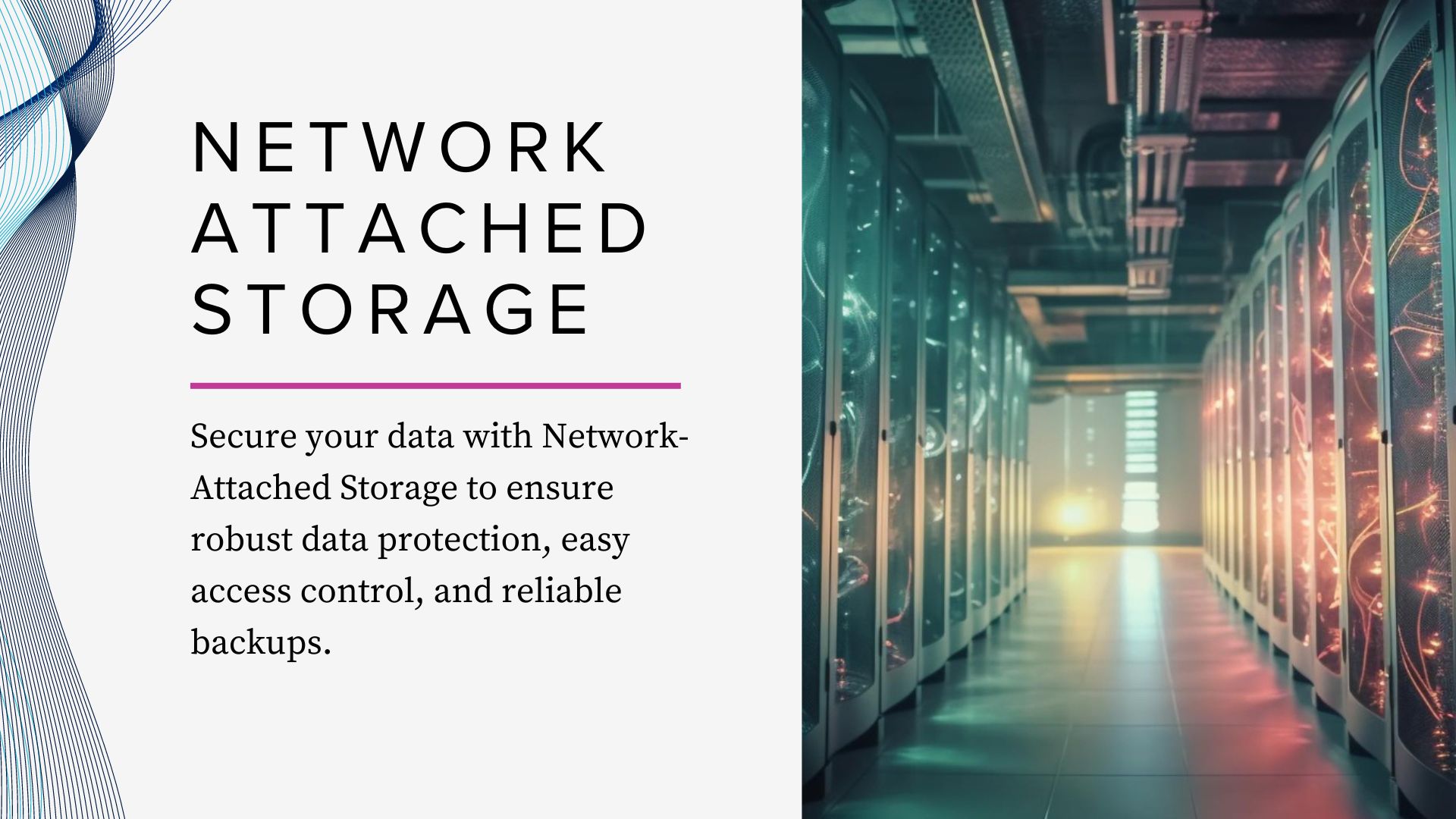Ransomware is one of the most dangerous and prevalent forms of malware in today's digital world. It has the ability to lock down your files and extort payment from you in exchange for their release. The trend of cybercriminals targeting businesses through ransomware attacks has been growing in recent years. This has made data security a critical aspect of business continuity planning. One of the most effective ways of ensuring your company's data is safe from ransomware attacks is by investing in a network-attached storage system. In this blog post, we will explain what a NAS system is, how to protect your data from ransomware attacks, and the benefits of using a NAS system for data security.
What is a Network-Attached Storage System?
A Network-Attached Storage (NAS) system is a type of storage solution that connects one or more hard drives to a network. Multiple users with authorized access can connect to the Network Attached storage and share data files or backup data on the network. The system can be managed through a web-based interface from any device that is connected to the network. NAS systems are an essential tool for businesses as they offer a centralized location for data storage, backup, and recovery. They also provide other essential services, such as data synchronization, file sharing, and remote access.
How to Protect Your Data from Ransomware Attacks?
The most effective way to protect your data from ransomware is to invest in a NAS backup system. The system must be configured in such a way that it is immune to ransomware attacks. Here are some tips on how to protect your data from ransomware:
- Regular data Backups: Configure your NAS to back up your data regularly. This ensures that you have a recent copy of your data that can be restored in case of a ransomware attack.
- System Updates: Always keep the NAS operating system and firmware up-to-date. Regular updates help to reduce vulnerabilities in your system that can be exploited by attackers.
- Strong Passwords: Use strong and unique passwords for all accounts on your NAS system. This includes all user and admin accounts. Use a password manager tool to generate strong passwords and store them securely.
- Enable Two-factor Authentication (2FA): 2FA adds an extra layer of security to your NAS system. With 2FA enabled, users must provide an additional code to access the system. Enabling 2FA reduces the risk of attackers gaining unauthorized access to your system.
- Anti-virus and Anti-malware: Install anti-virus and anti-malware tools on your NAS system. This helps to detect and remove ransomware before it causes any damage to your data.
The Benefits of Using a NAS for Data Security
Apart from protecting your data from ransomware attacks, a NAS system offers other benefits that make it an essential tool for data security. Some of these benefits include:
- Remote Access: With a NAS, users can access their data remotely from any location with an internet connection. This feature makes it ideal for employees who work remotely or for organizations with teams spread across several locations.
- Scalability: A NAS solutions system is highly scalable. If your storage needs increase, you can easily add more hard drives to the system without purchasing a new storage solution. This makes it cost-effective for businesses as they can scale their storage needs without worrying about the cost of acquiring a new system.
- Redundancy: Most NAS systems offer various data redundancy features, such as RAID configurations. These features ensure that your data is always available, even if one or more disks in the system fail. This makes it ideal for businesses that require high data availability and continuity.
Conclusion
Ransomware attacks are becoming more sophisticated, and businesses need to take a proactive approach to protect their company's data. One of the most effective ways of protecting your data is through a NAS backup system. A NAS system provides several benefits that make it an essential tool for data security, including scalability, redundancy, and remote access. By investing in a NAS system and following the tips and guidelines in this blog post, businesses can safely secure their data from ransomware attacks and ensure business continuity.
